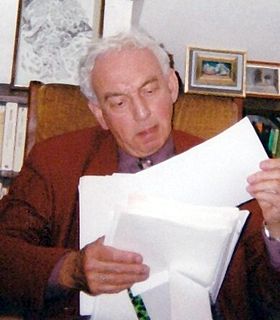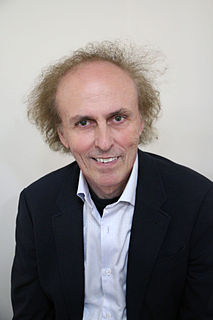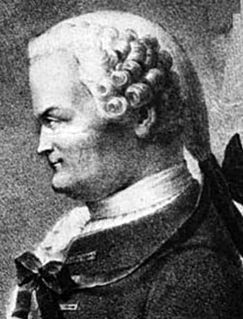Цитата Ганса Райхенбаха
... дифференциальный элемент неевклидовых пространств евклидов. Этот факт, однако, аналогичен отношениям между прямой и кривой и не может привести к гносеологическому приоритету евклидовой геометрии, в отличие от взглядов некоторых авторов.
Связанные цитаты
Теоретики-классики напоминают евклидовых геометров в неевклидовом мире, которые, обнаружив, что на опыте прямые, кажущиеся параллельными, часто встречаются, упрекают линии за то, что они не следуют прямолинейности, как единственное средство от происходящих досадных столкновений. Однако на самом деле нет другого выхода, кроме как отбросить аксиому параллелей и разработать неевклидову геометрию.
Я вошел в омнибус, чтобы поехать в то или иное место. В тот момент, когда я ступил на ступеньку, ко мне пришла идея, без каких-либо прежних мыслей, которые, казалось бы, подготовили для нее путь, что преобразования, которые я использовал для определения фуксовых функций, идентичны неевклидовой геометрии. .
Моя семья была обеспеченной, но не богатой. Я провел четыре года, когда был студентом, работая на пляже. И это было не потому, что я был ленив; это было потому, что мой класс первокурсников ходил к сотне разных работодателей и не получал ни крошки. Это была неравновесная система. Я понял, что обычная старомодная евклидова геометрия неприменима.
Развитие западной науки основано на двух великих достижениях: изобретении формальной логической системы (в евклидовой геометрии) греческими философами и открытии возможности выяснения причинно-следственных связей путем систематического эксперимента (в эпоху Возрождения). На мой взгляд, не следует удивляться тому, что китайские мудрецы не сделали этих шагов. Удивительно то, что эти открытия вообще были сделаны.
Но тогда Cap'n Crunch в чешуйчатой форме был бы суицидальным безумием; он продержится примерно столько же времени, погруженный в молоко, как снежинки, просеянные во фритюрнице. Нет, инженеры по хлопьям в General Mills должны были найти форму, которая минимизировала бы площадь поверхности, и в качестве своего рода компромисса между сферой, которая диктуется евклидовой геометрией, и любыми формами, связанными с затонувшими сокровищами, которых, вероятно, добивались эстетисты хлопьев, они придумали эту полосатую подушку, которую трудно определить.
Мир форм, линий, кривых и тел так же разнообразен, как и мир чисел, и только наше давно удовлетворенное владение евклидовой геометрией дает нам впечатление или иллюзию того, что мир уже существует. была включена в управляемую интеллектуальную структуру. Черты этой структуры хорошо известны: как и в остальной жизни, что-то дается и что-то приобретается; но логика, стоящая за этими чертами лица, может остаться незамеченной, и именно логика управляет системой.
Но я по-прежнему регулярно читаю Шоу. Что я люблю, так это наготу полемики и непреодолимое хорошее настроение. Для меня «Майор Барбара» — величайшая из всех пьес в том смысле, что она начинается с рационального и впечатляющим образом переходит к экстатическому и оставляет вас в полном замешательстве, если вы цепляетесь за евклидову логику.
Мы находим в истории идей мутации, которые не кажутся соответствующими какой-либо очевидной необходимости и кажутся на первый взгляд простыми шутливыми причудами, как, например, работа Аполлония о конических сечениях или неевклидовы геометрии, практическая ценность которых стала очевидной только позже.








































